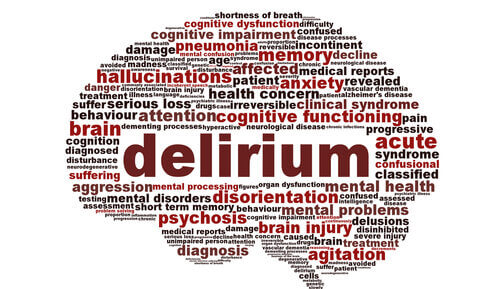
Page contents
Sepsis cases are steadily on the rise. In England, there are currently around 123000 cases a year, 37000 of which are fatal. Suggested reasons for this include the ageing population, increased use of immunosuppressants, more invasive surgery and overuse of antibiotics leading to immunity. Older people in particular, and their loved ones, ought to be aware of sepsis and its symptoms. The condition is much more common in older people and requires urgent treatment or it can be fatal.
What is sepsis?
Sepsis is a serious, life-threatening condition that requires urgent care. Sometimes called blood poisoning, it happens when the body’s immune system overreacts to an infection or injury. This then causes inflammation within blood vessel linings and restricts how much blood and oxygen can get to vital organs.
Sepsis can be treated with antibiotics but it must be caught early. If left untreated, the person’s blood pressure can drop to dangerously low levels and result in a serious lack of oxygen to parts of the body. This is called septic shock, and can cause parts of the body to be damaged or die, including limbs, facial tissue and vital organs.
If the person recovers, full recovery may take time as survivors can experience Post Sepsis Syndrome (PSS) which carries physical, psychological and emotional symptoms. Older survivors are more likely to experience cognitive issues afterwards.
Is sepsis more dangerous for older people?
Anyone can contract sepsis but it is more dangerous to vulnerable people, including young children, older people and those with health problems or compromised immune systems. According to Sepsis Alliance, more than two thirds of sepsis cases are in people over 60.
There are a number of reasons that sepsis can be more likely to happen to older people, such as:
- They are more likely to have existing long-term health conditions that weaken the body.
- Older people’s immune systems are less able to fight off infections and more prone to inflammation.
- Initial symptoms of sepsis can be more subtle and harder to spot in the elderly. For example, older people are less likely to have a fever and instead feel cold and clammy. Symptoms like weakness and low appetite may also be overlooked as these are a common feature of old age.
- They are more likely to have mobility issues that can result in bed sores, which can lead to infection.
What are the early symptoms of sepsis in older people?
Symptoms of sepsis in adults include:
- Rapid heart rate
- Rapid breathing
- Fever and feeling hot
- Feeling cold and clammy
- Shivering
- A rash
- Weak or sore muscles
- Not urinating much
- Feeling really ill or in pain
- Slurring speech
- Delirium, or sudden confusion and bewilderment. This is a more common symptom in older people but can be overlooked due to their age or mistaken for dementia.
Children may additionally experience:
- Fits
- Blotchy, blue or pale skin
- Drowsiness
How can I protect myself against sepsis?
It’s not always possible to prevent sepsis and it’s certainly not your fault if you or a loved one contracts it. However, minimising the chance of catching an infection in the first place is a good prevention method. You can do this by:
- Don’t abuse antibiotics. The body can build a tolerance to them if overused, so make sure to only use your prescribed course.
- Get vaccines that are available to you, like the flu vaccine or pneumococcal vaccine, to strengthen your immune system and decrease the likelihood of sepsis occurring.
- Practise good hygiene to reduce risk of infection.
- Always disinfect any cuts and scrapes, however small.
- Always go to the doctor if you think you may have an infection, even if it’s something very normal like flu.
Memorise the symptoms of sepsis so that you can spot it easily and early.
What should I do if I think I might have sepsis?
If you or a loved one has any of the symptoms of sepsis, it’s essential to seek urgent medical help. If you have an infection such as the flu or a UTI, be extra vigilant in looking out for symptoms, but some people don’t realise they have an infection when they get sepsis.
With every hour that sepsis goes untreated, the chance of death increases by 8%, so call 999, 111 or your local doctor’s surgery for urgent advice.


